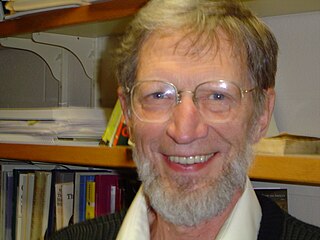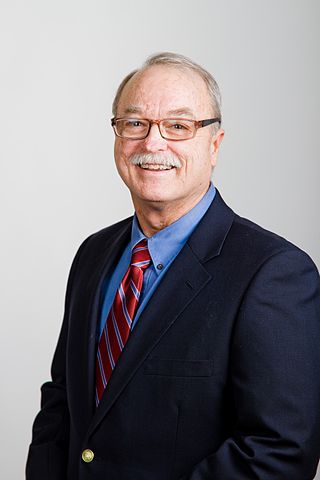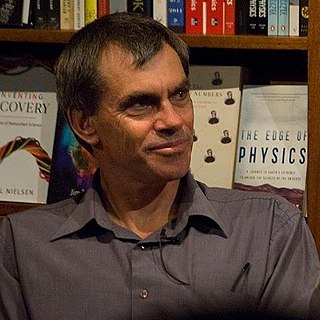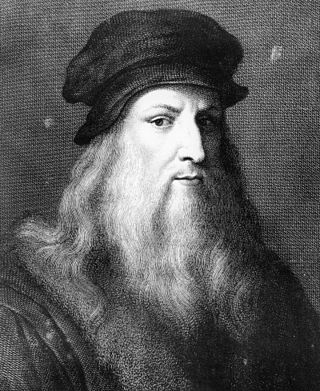Related Research Articles
The argument from morality is an argument for the existence of God. Arguments from morality tend to be based on moral normativity or moral order. Arguments from moral normativity observe some aspect of morality and argue that God is the best or only explanation for this, concluding that God must exist. Arguments from moral order are based on the asserted need for moral order to exist in the universe. They claim that, for this moral order to exist, God must exist to support it. The argument from morality is noteworthy in that one cannot evaluate the soundness of the argument without attending to almost every important philosophical issue in meta-ethics.
Theism is broadly defined as the belief in the existence of at least one deity. In common parlance, or when contrasted with deism, the term often describes the philosophical conception of God that is found in classical theism—or conception found in monotheism—or gods found in polytheistic religions—or a belief in God or gods without the rejection of revelation as is characteristic of deism.

Alvin Carl Plantinga is an American analytic philosopher who works primarily in the fields of philosophy of religion, epistemology, and logic.

John Leslie Mackie was an Australian philosopher. He made significant contributions to ethics, the philosophy of religion, metaphysics, and the philosophy of language.

Richard Granville Swinburne is an English philosopher. He is an Emeritus Professor of Philosophy at the University of Oxford. Over the last 50 years, Swinburne has been a proponent of philosophical arguments for the existence of God. His philosophical contributions are primarily in the philosophy of religion and philosophy of science. He aroused much discussion with his early work in the philosophy of religion, a trilogy of books consisting of The Coherence of Theism, The Existence of God, and Faith and Reason.

Sir Anthony John Patrick Kenny is a British philosopher whose interests lie in the philosophy of mind, ancient and scholastic philosophy, the philosophy of religion, and the philosophy of Wittgenstein of whose literary estate he is an executor. With Peter Geach, he has made a significant contribution to analytical Thomism, a movement whose aim is to present the thought of St. Thomas Aquinas in the style of analytic philosophy. He is a former president of the British Academy and the Royal Institute of Philosophy.

William Lane Craig is an American analytic philosopher, Christian apologist, author, and Wesleyan theologian who upholds the view of Molinism and neo-Apollinarianism. He is a professor of philosophy at Houston Christian University and at the Talbot School of Theology of Biola University. Craig has updated and defended the Kalam cosmological argument for the existence of God. He has also published work where he argues in favor of the historical plausibility of the resurrection of Jesus. His study of divine aseity and Platonism culminated with his book God Over All.
The existence of God is a subject of debate in metaphysics, theology, philosophy of religion and popular culture. A wide variety of arguments for and against the existence of God can be categorized as logical, empirical, metaphysical, subjective or scientific. In philosophical terms, the question of the existence of God involves the disciplines of epistemology and ontology and the theory of value.

James Porter Moreland, better known as J. P. Moreland, is an American philosopher, theologian, and Christian apologist. He is a Distinguished Professor of Philosophy at Talbot School of Theology at Biola University in La Mirada, California.
Metaphysical naturalism is a philosophical worldview which holds that there is nothing but natural elements, principles, and relations of the kind studied by the natural sciences. Methodological naturalism is a philosophical basis for science, for which metaphysical naturalism provides only one possible ontological foundation. Broadly, the corresponding theological perspective is religious naturalism or spiritual naturalism. More specifically, metaphysical naturalism rejects the supernatural concepts and explanations that are part of many religions.

In monotheistic belief systems, God is usually viewed as the supreme being, creator, and principal object of faith. In polytheistic belief systems, a god is "a spirit or being believed to have created, or for controlling some part of the universe or life, for which such a deity is often worshipped". Belief in the existence of at least one god is called theism.

Graham Robert Oppy is an Australian philosopher whose main area of research is the philosophy of religion. He currently holds the posts of Professor of Philosophy and Associate Dean of Research at Monash University and serves as CEO of the Australasian Association of Philosophy, Chief Editor of the Australasian Philosophical Review, Associate Editor of the Australasian Journal of Philosophy, and serves on the editorial boards of Philo, Philosopher's Compass, Religious Studies, and Sophia. He was elected Fellow of the Australian Academy of the Humanities in 2009. Graham Oppy is widely considered by some philosophers to be most formidable defender of Atheism living today.
Paul Robert Draper is an American philosopher, most known for his work in the philosophy of religion. His work on the evidential argument from evil has been widely influential. He is currently a professor at Purdue University. He is co-editor of topics in the philosophy of religion for the Stanford Encyclopedia of Philosophy.

Philosophical theism is the belief that the Supreme Being exists independent of the teaching or revelation of any particular religion. It represents belief in God entirely without doctrine, except for that which can be discerned by reason and the contemplation of natural laws. Some philosophical theists are persuaded of God's existence by philosophical arguments, while others consider themselves to have a religious faith that need not be, or could not be, supported by rational argument.
Charles Taliaferro is an American philosopher specializing in theology and philosophy of religion. He is an emeritus professor of philosophy at St. Olaf College, a senior research fellow at the Institute for Faithful Research, and a member of the Royal Institute of Philosophy. He is the author, co-author, editor, or co-editor of twenty books, most recently The Image in Mind; Theism, Naturalism and the Imagination, co-authored with the American artist Jil Evans. He has been a visiting scholar or guest lecturer at a large number of universities, including Brown, Cambridge, Notre Dame, Oxford, Princeton, and the University of Chicago. Since 2013 Taliaferro is editor-in-chief of the journal Open Theology.
Wesley J. Wildman is a contemporary Australian-American philosopher, theologian, and ethicist. Currently, he is a full professor at the Boston University School of Theology, founding member of the faculty of Computing and Data Sciences, and convener of the Religion and Science doctoral program in Boston University's Graduate School. He is executive director of The Center for Mind and Culture, founding co-director of the Institute for the Biocultural Study of Religion, and founding co-editor of the journal Religion, Brain & Behavior. Wildman's academic work has focused on interpreting religion and building theories of religious beliefs, behaviours, and experiences that acknowledge value in longstanding traditions while attempting to remain intellectually viable in light of the biological, cognitive, evolutionary, physical, and social sciences. He is an important figure in the religion and science field, along with scholars such as Robert John Russell, Nancey Murphy, and John Polkinghorne.
Alexander Robert Pruss is a Canadian philosopher and mathematician. He is currently a professor of philosophy and the co-director of graduate studies in philosophy at Baylor University in Waco, Texas.
Michael Abram Bergmann is an American analytic philosopher teaching in the department of philosophy at Purdue University. His primary interests are epistemology and philosophy of religion. In epistemology, he writes mostly on externalism and, in philosophy of religion, he mostly writes on the epistemology of religious belief and the problem of evil.

In philosophy, naturalism is the idea that only natural laws and forces operate in the universe. In its primary sense it is also known as ontological naturalism, metaphysical naturalism, pure naturalism, philosophical naturalism and antisupernaturalism. "Ontological" refers to ontology, the philosophical study of what exists. Philosophers often treat naturalism as equivalent to materialism.
Australian philosophy refers to the philosophical tradition of the people of Australia and of its citizens abroad. Academic philosophy has been mostly pursued in universities. It has been broadly in the tradition of Anglo-American analytic philosophy, but has also had representatives of a diverse range of other schools, such as idealism, Catholic neo-scholasticism, Marxism, and continental, feminist and Asian philosophy.
References
- ↑ P.R.H. Forrest in Mathematics Genealogy Project.
- ↑ Forrest, Peter (2004). "The Real but Dead Past: A Reply to Braddon-Mitchell". Analysis. 64 (4): 358–362. doi:10.1093/analys/64.4.358. ISSN 1467-8284. JSTOR 3328947.